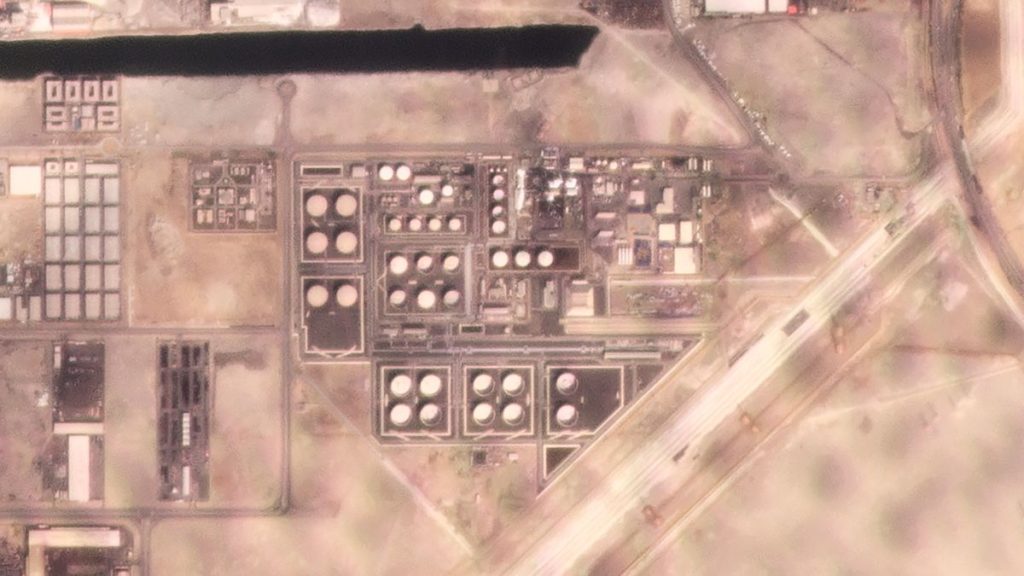A drone attack in Abu Dhabi could mark a dangerous turning point for the Middle East

Three people were killed when the strikes hit fuel trucks near the airport in Abu Dhabi on Monday, causing multiple explosions. Yemen’s Iran-backed Houthi rebels quickly claimed the attacks.In response, the UAE and Saudi Arabia responded by pummelling the Yemeni capital of Sana’a with airstrikes, killing at least 12 people, in the deadliest bombardment in the city since 2019.Aside from escalating violence in a region that has sought to turn the page on a decade of proxy wars, the exchange of fire could also cloud a series of high-level talks between regional and international foes. Negotiations between Iran and Western powers on how to revive the 2015 deal to limit Tehran’s nuclear program have recently shown signs of progress. And there are also indications that historic but difficult discussions between Saudi Arabia and regional rival Iran were beginning to bear fruit. But the unprecedented Houthi attacks in Abu Dhabi could throw a wrench into those talks. And if the rebels make good on their promise to launch further strikes, it could dent the UAE’s image as a safe place to live, work and do business in a troubled region.Here’s what to know about the crisis.But for years, the UAE’s muscular foreign policy — which saw it intervene in Egypt, Libya, Syria and the horn of Africa, in addition to Yemen — imperiled that very stability. When tankers were being targeted by its regional arch-nemesis Iran in 2019, off the coast of the UAE, Abu Dhabi quickly changed tack. Since then it’s been on a diplomatic spree to heal years-old rifts. It has made a number of overtures to Iran, including sending a high-level delegation reportedly in October 2019 and then again in late 2021. It’s also mended ties with Syria’s pariah president Bashar al-Assad, after backing armed groups that sought to overthrow him in that country’s war. The UAE’s leadership has repeatedly said that it seeks to become a deescalating force in the region. Yet Monday’s attack underscored a point that many observers have made, which is that turning the page on a decade of blood-drenched proxy war will be neither smooth nor instantaneous. All countries in the region, not just the UAE, will have a vested interest in a rapid deescalation of Monday’s violence. Was Iran involved in the Houthi attack on the UAE?We don’t know. What we do know that the drones were likely supplied by Iran, the principal supporter of the Houthis in their war on the internationally-recognized government of Yemen. But it is unclear if the Houthis’ backers in Tehran ordered the strike, or if the rebel group suddenly went rogue. It wouldn’t be the first time Iran-aligned groups appeared to go their own way. In November 2021, the head of Iran’s elite Quds force Esmail Qaani paid a visit to Iraqi Prime Minister Mostafa al-Kadhimi, shortly after an attempt on the life of Iraqi Prime Minister Mostafa al-Kadhimi by Iran-backed militias. Some observers saw the visit as a bid to distance Iran from the actions of their militant allies. Another reason to suspect that Houthis acted on their own accord is that Iran has repeatedly said that it wishes to revive relations with its regional foes. Iran’s new hardline President Ebrahim Raisi has received at least two invitations to visit the UAE, according to Iranian state media. In their statements condemning the attack in Abu Dhabi, Saudi Arabia and the UAE — uncharacteristically — steered clear of blaming the rebel group’s backers in Tehran. Iran has not yet publicly commented on the attack.Yet, as ever, Iran’s leadership is hard to read. A Lebanese news network, Al Mayadeen, reported that Raisi met with the head of Sana’a’s negotiation team in Tehran on Monday, the day of the attack. Some observers viewed that as an admission of responsibility in the Abu Dhabi attack. What does this mean for the Iran nuclear talks? The violence on Monday has the potential to derail the nuclear negotiations in Vienna, as well as parallel talks between Saudi Arabia and Iran seen as critical to the success of a possible second version of the 2015 deal. If Iran is believed to be behind the Monday attack in Abu Dhabi — in the same way that they were widely accused of being responsible for the 2019 attacks on ARAMCO oil refineries (Iran denied the allegations) — then confidence-building measures could collapse and it would be difficult to see how the negotiations could continue. If, on the other hand, Iran brings the Houthis to heel, as an overture to its regional foes, then Monday’s violence may blow over and the negotiations could carry on, possibly unabated. CNN’s Sarah El Sirgany contributed to this report from Abu Dhabi.


